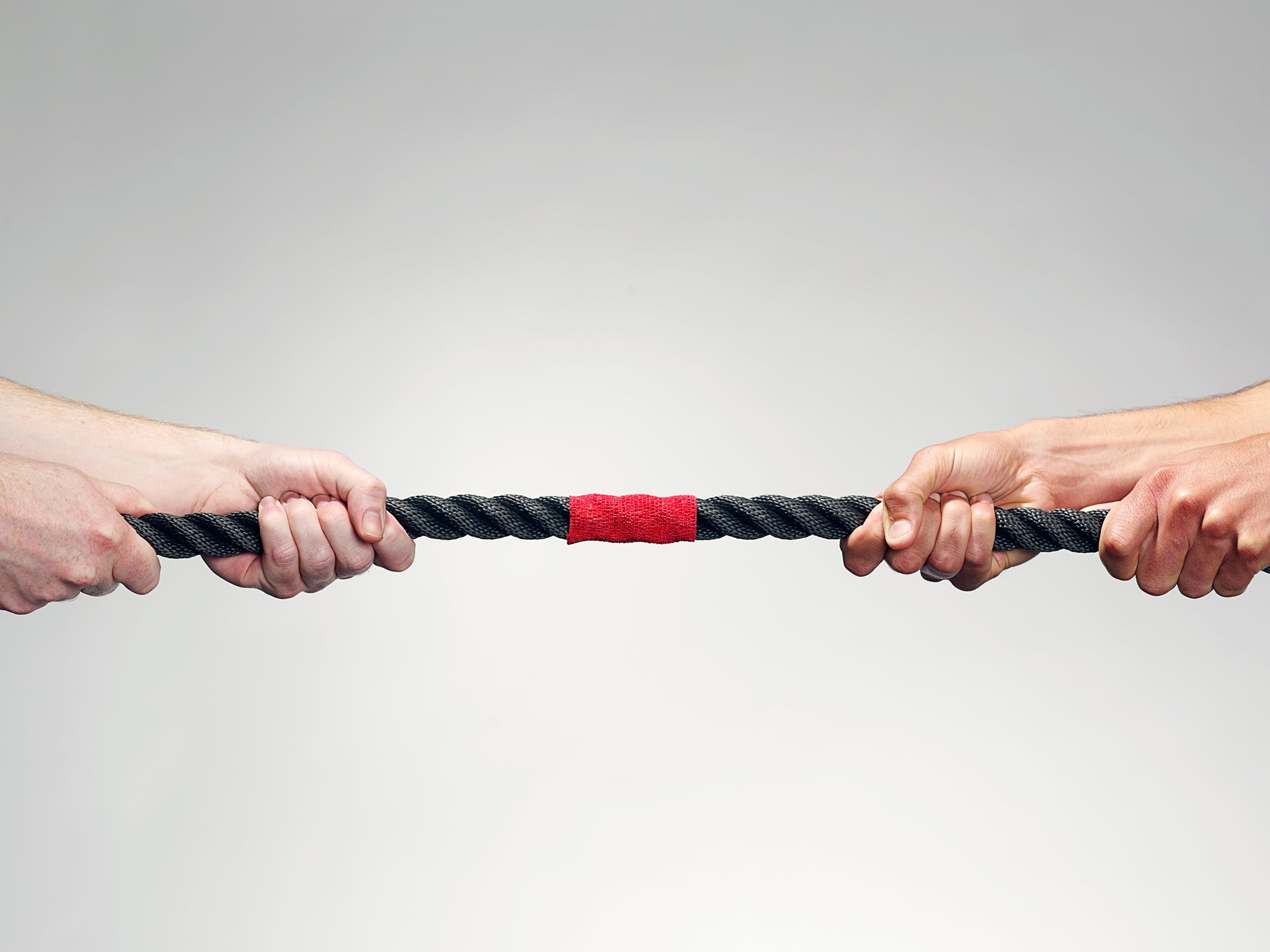Tug of war: Is the old Olympic sport seeing a new revival?
Forget fat, beery blokes competing after liquid lunches at the village fête, this sport may soon see the lights of the Olympics

As they gathered on the hallowed turf of Johnson Park, Yeovil, competitors in the English national outdoor tug of war championships could have been forgiven for feeling even more excited than normal.
Theirs, it was said, was already the sport of the Ancient Greeks, Tang Dynasty emperors and Vikings. Now, though, there was the chance of an even greater accolade: inclusion in the Olympic Games. Tomorrow the organisers of the Tokyo 2020 Olympics will release a shortlist of sports that might be included as new events.
There are 25 other sports, including bowls, dance, chess, bridge and ultimate Frisbee, vying to make the shortlist, a vital step towards being announced as an Olympic sport next year. But Alan Knott, a spokesman for the English Tug of War Association, said the nation would surely welcome tug of war at the Olympics: Team GB are the reigning Olympic champions, having won gold in 1920 at the Antwerp Games, the last before the sport was dropped.
“Tug of war might boost Team GB’s medal tally,” said Mr Knott, 31. “The UK countries have dominated the indoor championships. The Swiss tend to dominate outdoor, but we are not far away.”
Competitors, he insisted, were no longer fat, beery blokes competing after liquid lunches at the village fête. They were finely honed athletes, two teams of eight straining every sinew to drag the other team a distance of four metres (13ft). “There is stamina involved. My team trains three nights a week, and in between I do sprint training, cardio training, five- to 10-mile runs.
“A hotly contested pull can last 10 minutes. It’s a lot more exciting than people think.
“If rhythmic gymnastics and synchronised swimming can get in,” he added, “why can’t tug of war? They are more dance, performing arts, than sport. One competitor can get 10 points and another nine, and you never really know why. With tug of war, there is an obvious winner.”
Few other sports, said Mr Knott, a town planning consultant from Northwich, Cheshire, could approach tug of war’s global heritage. “We believe it was in the Ancient Greek Olympics,” he said.
“In Scandinavia the Vikings indulged in various pulling trials of strength.
“In [eighth century] China, the Tang Emperor Xuanzong sanctioned games in which ropes more than 150 metres [500ft] long were pulled by competing teams of 500 or more men.”
He explained that the name is thought to derive from Royal Navy sailors diverting themselves with ropes that were to hand on their man-of-war ships. The English association now has up to 1,000 members. The sport is played on an organised basis in more than 70 countries, up from fewer than 40 in the early 1990s.
“Tug of war can inspire everyone,” said Mr Knott “It is a lot more accessible to poorer countries than other sports. All the equipment you need is a bit of flat ground and a rope and you are away.
“It’s also very big in Japan. They have about 2,000 teams over there … Which we hope might help us get into the Tokyo Olympics.”
Join our commenting forum
Join thought-provoking conversations, follow other Independent readers and see their replies
Comments
Bookmark popover
Removed from bookmarks